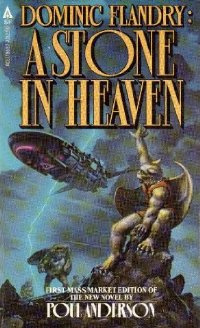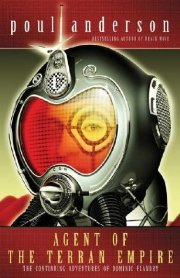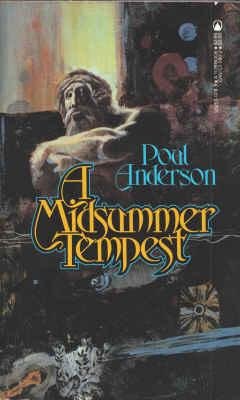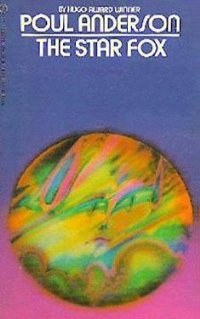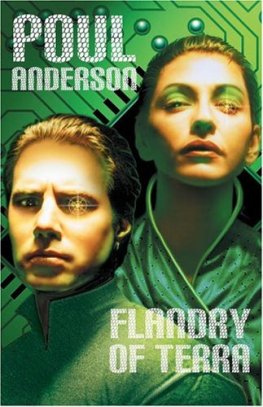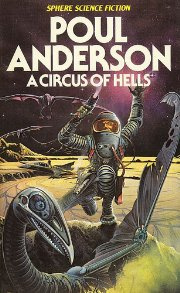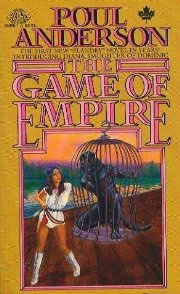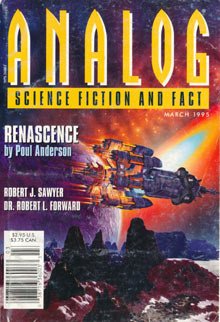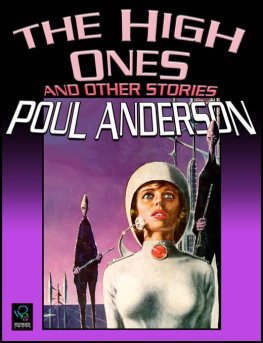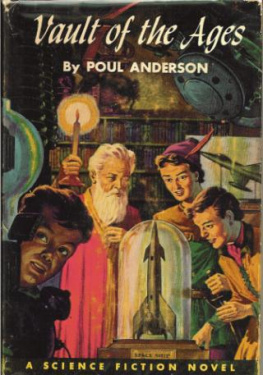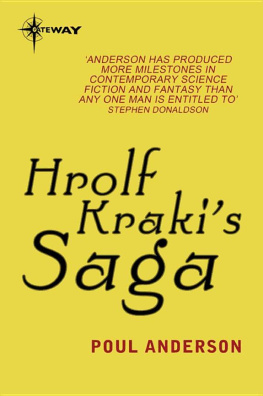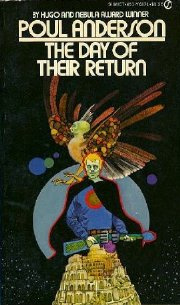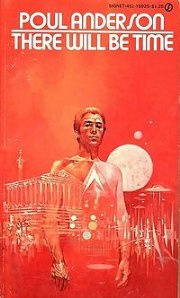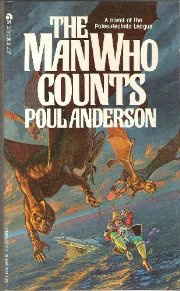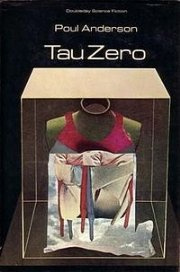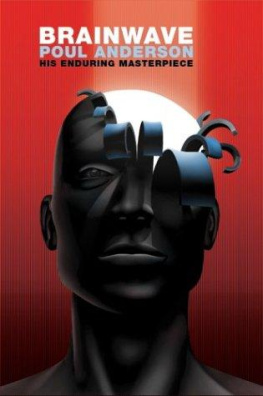Annotation
In A Stone in Heaven, Dominic Flandry finds friendship, maybe even love, after many years of being totally alone.
After A Knight of Ghosts and Shadows, Flandry's life stood in ruins. His Emperor, unbeknownst to him at the time, was dead; his sons were incompetent. His love was dead; his son was dead; he didn't believe in his job any longer, and he'd taken out his biggest adversary.
So, what was left? This book shows the answer: plenty.
The younger son of Hans Molitor now holds the throne in his incompetent grasp, and worse, does not like Flandry. So, although Flandry is now a Vice-Admiral and commands much respect, he isn't thrown too many assignments. On the other hand, he is able to make his own schedule, so when Miriam Abrams, daughter of mentor Max Abrams (his superior in Ensign Flandry), manages to get to him to point out a major problem on Ramnau, he leaves.
Once again, he finds intrigue and lots of it, problems, and pain. But unlike A Knight of Ghost and Shadows, Flandry this time finds more while he's solving the mystery. He and Abrams reach an understanding, and more or less pair off by the end of the book. He also helps solve her problem, take out a would-be Emperor candidate, and rehabilitate his image with Emperor Gerhardt (the younger son of Hans Molitor) in the process, so it's definitely not a wasted trip.
A Stone in Heaven
by Poul Anderson
I
Through time beyond knowing, the Kulembarach clan had ranged those lands which reach south of Lake Roan and east of the Kiiong River. The Forebear was said to have brought her family up from the Ringdales while the Ice was still withdrawing beyond the Guardian Mountains. Her descendants were there on the territory she took when traders from West-Oversea brought in the arts of ironworking and writing. They were old in possession when the first Seekers of Wisdom arose, and no few of them joined the College as generations passed. They were many and powerful when the long-slumbering fires in Mount Gungnor awoke again, and the Golden Tide flowed forth to enrich this whole country, and the clans together established the Lords of the Volcano. They were foremost in welcoming arid dealing with the strangers from the stars.
But about that time, the Ice began returning, and now the folk of Kulembarach were in as ill a plight as any of their neighbors.
Yewwl had gone on a long hunt with her husband Robreng and their three youngest children, Ngao, Ych, and little Ungn. That was only partly to get food, when the ranchlands could no more support enough livestock. It was also to get away, move about, unleash some of their rage against the fates upon game animals. Besides, her oath-sister Banner was eager to learn how regions distant from Wainwright Station were changed by cold and snow, and Yewwl was glad to oblige.
The family rode east for an afternoon and most of the following night. Though they did not hurry, and often stopped to give chase or to rest, that much travel took them a great ways, to one of the horn-topped menhirs which marked the territorial border of the Arrohdzaroch clan. Scarcity of meat would have made trespass dangerous as well as wrong. Yewwl turned off in a northwesterly direction.
"We will go home by way of the Shrine," she explained to the others--and to Banner, who saw and heard and even felt what she did, through the collar around her neck. Had she wished to address the human unheard by anybody else, she would have formed the words voicelessly, down in her throat.
The alien tone never came to any hearing but Yewwl's; Banner had said the sound went in through her skull. Eighteen years had taught Yewwl to recognize trouble in it: "I've seen pictures lately, taken from moon-height. You would not like what you found there, dear."
Fur bristled, vanes spread and rippled, in sign of defiance. "I understand that. Shall the Ice keep me from my Forebear?" Anger died out. For Banner alone, Yewwl added softly, "And those with me hope for a token from her--an oracular dream, perhaps. And ... I may be an unbeliever in such things, because of you, but I myself can nonetheless draw strength from them."
Her band rode on. Night faded into hours of slowly brightening twilight. The storminess common around dawn and sunset did not come. Instead was eerie quiet under a moon and a half. The nullfire hereabouts did not grow tall, as out on the veldt, but formed a thick turf, hoarfrost-white, that muffled the hoofbeats of the onsars. Small crepuscular creatures were abroad, darters, scuttlers, light-flashers, and the chill was softened by a fragrance of nightwort, but life had grown scant since Yewwl and Robreng were young. They felt how silence starkened the desolation, and welcomed a wind that sprang up near morning, though it bit them to the bone and made stands of spearcane rattle like skeletons.
The sun rose at last. For a while it was a red step pyramid, far and far on the blurry horizon. The sky was opalescent. Below, land rolled steeply upward, cresting in a thousand-meter peak where snow and ice flushed in the early light. That burden spilled down the slopes and across the hills, broken here and there by a crag, a boulder, a tawny patch of uncovered nullfire, a tree--brightcrown or saw-frond--which the cold had slain. A flyer hovered aloft, wings dark against a squat mass of clouds. Yewwl didn't recognize its kind. Strange things from beyond the Guardian Range were moving in with the freeze.
Ungn, her infant, stirred and mewed in her pouch. Her belly muscles seemed to glow with it. She might have stopped and dismounted to feed him, but a ruddy canyon and a tarn gone steel-hard told her through memory how near she was to her goal. She jabbed foot-claws at her onsar's extensors and the beast stepped up its pace from a walk to a shamble, as if realizing, weary though it was and rapidly though the air was thinning, that it could soon rest. Yewwl reached into a saddlebag, took forth a strip of dried meat, swallowed a part for herself and chewed the remainder into pulp. Meanwhile she had lifted Ungn into her arms and cuddled him. Her vanes she folded around her front to give the beloved mite shelter from the whining, seeking wind.
Ych rode ahead. The sun entered heaven fully, became round and dazzling, gilded his pelt and sent light aflow over the vanes that he spread in sheer eagerness. He was nearly grown, lithe, handsome; no ruinous weather could dim the pride of his youth. His sister Ngao, his junior by three years, rode behind, leading several pack animals which bore camp gear and the smoked spoils of the hunt. She was slightly built and quiet, but Yewwl knew she was going to become a real beauty. Let fate be kind to her!
Having well masticated the food, the mother brought her lips around her baby's and, with the help of her tongue, fed him. He gurgled and went back to sleep. She imagined him doing it happily, but knew that was mere imagination. Just six days old--or fourteen, if you counted from his begetting--he was as yet tiny and unshapen. His eyes wouldn't open for another four or five days, and he wouldn't be crawling around on his own till almost half a year after that.
Robreng drew alongside. "Here," Yewwl said. "You take him a while." She handed Ungn over for her husband to tuck in his pouch. With a close look: "What's wrong?"
The tautness of his vane-ribs, the quivering along their surfaces, the backward slant of his ears, everything about him cried unease. He need but say: "I sense grief before us."
Yewwl lifted her right thigh to bring within reach the knife sheathed there. (Strapped to the left was a purse for flint, steel, tinderbox, and other such objects.) "Beasts?" Veldt lopers seldom attacked folk, but a pack of them--or some different kind of carnivore--might have been driven desperate by hunger. "Invaders?" The nightmare which never ended was of being overrun by foreigners whom starvation had forced out of their proper territory.

